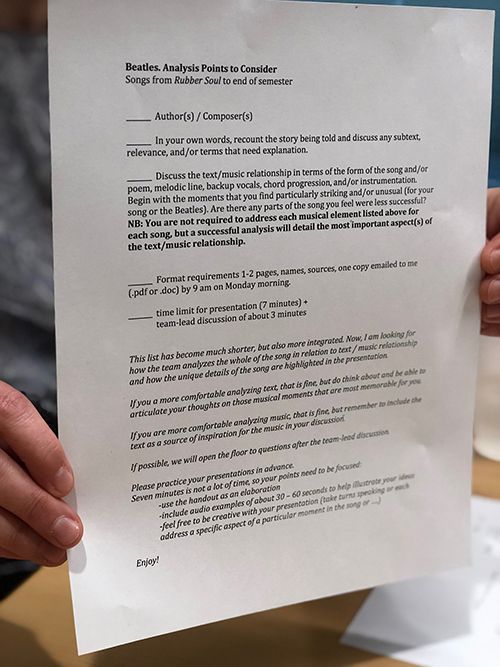In this section, Teresa Neff shares her insights about the importance of explicitly stating expectations about how students should engage with assignments.
"I don’t believe it’s fair to expect a student to implicitly know what I want them to do."
I frequently provide students with guidelines that outline my expectations for particular assignments. I think if we don’t tell students what we expect, they have no way of knowing, especially because our students come from many different backgrounds. Being explicit about expectations becomes even more important given that we’re Massachusetts Institute of Technology, and I’m teaching a humanities class. Something as simple as how you construct a humanities-style essay as opposed to how you construct a scientific lab report is not necessarily obvious. I don’t believe it’s fair to expect a student to implicitly know what I want them to do.
As a result, I’ve been trying to be more specific about my expectations, but without being prescriptive. I don’t want the guidelines to make students feel they have no freedom in an assignment. But I also don’t want them to be surprised when the format they follow is not what I expect. It’s a balancing act.
I didn’t feel this way when I first started teaching. But I’ve learned over the years that we don’t have a right to expect students to perform in a certain way unless we tell them what we require.

Teresa Neff holds a set of guidelines for students’ analyses.








